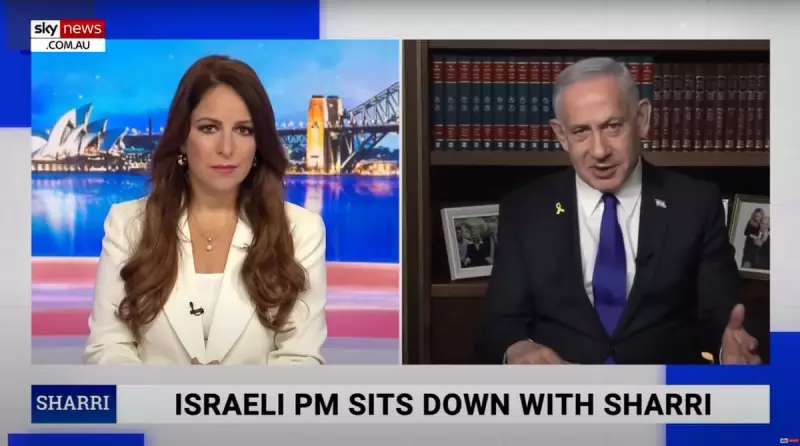
In what can only be described as a public relations coup, Benjamin Netanyahu secured nearly thirty minutes of uninterrupted airtime on Sky News Australia this week, delivering a meticulously crafted narrative that went largely unchallenged by his interviewers.
The Israeli Prime Minister's appearance ticked off all his familiar talking points with surgical precision, from justifying military actions in Gaza to portraying Israel as the victim of international bias. The format allowed Netanyahu to present his case without the rigorous cross-examination that might be expected from more robust journalistic quarters.
The Unfiltered Platform
Sky News Australia provided Netanyahu with what many media analysts would consider an extraordinary platform. The interview format permitted the Prime Minister to:
- Elaborate on military strategy without interruption
- Repeat claims about Hamas's use of human shields
- Decry international institutions like the UN for alleged bias
- Position Israel as defending Western values
- Avoid tough questions about civilian casualties
This approach stands in stark contrast to more confrontational interviews Netanyahu has faced elsewhere, particularly on European networks where journalists have pressed him harder on contentious issues.
A Pattern of Media Strategy
Netanyahu's team has demonstrated particular skill in identifying friendly media outlets that provide sympathetic platforms for his messaging. The Sky News Australia interview follows a pattern of seeking out conservative-leaning media environments where the Prime Minister can speak at length without significant challenge.
This strategy appears designed to bypass traditional media gatekeepers and speak directly to audiences more receptive to his narrative, particularly in English-speaking countries where public opinion on the conflict remains divided.
Questions of Journalistic Responsibility
The interview raises important questions about media responsibility during conflicts. Should news organisations provide platforms for political leaders to present their case without rigorous challenge, particularly when discussing ongoing military operations that have resulted in significant civilian casualties?
Media ethics experts suggest that unchallenged interviews with political leaders during conflicts risk becoming vehicles for propaganda rather than instruments of public information. The absence of tough follow-up questions means audiences receive only one side of a complex story.
International Reaction and Implications
The reception to Netanyahu's interview has been mixed, with critics accusing Sky News Australia of providing a platform for Israeli propaganda without adequate journalistic scrutiny. Supporters, however, argue that allowing leaders to speak at length without interruption provides valuable insight into their thinking and strategy.
This incident reflects broader concerns about media fragmentation and the creation of parallel information ecosystems where different audiences receive dramatically different accounts of the same conflict.
As the conflict continues, the role of media in either challenging or amplifying official narratives remains a crucial element in shaping international public opinion and policy responses.





